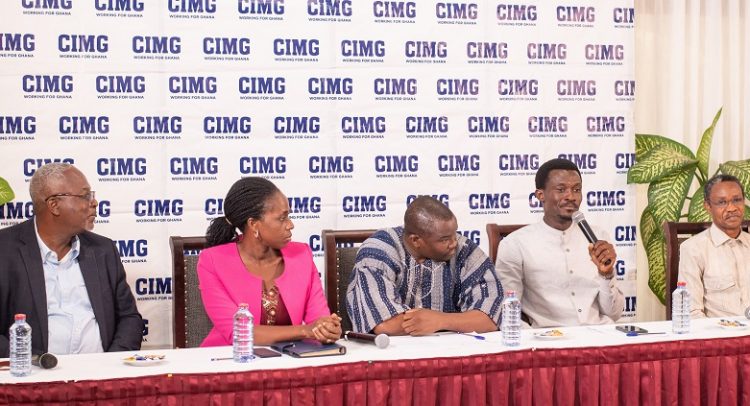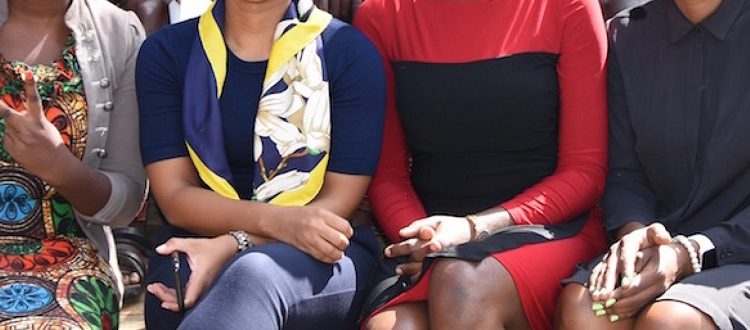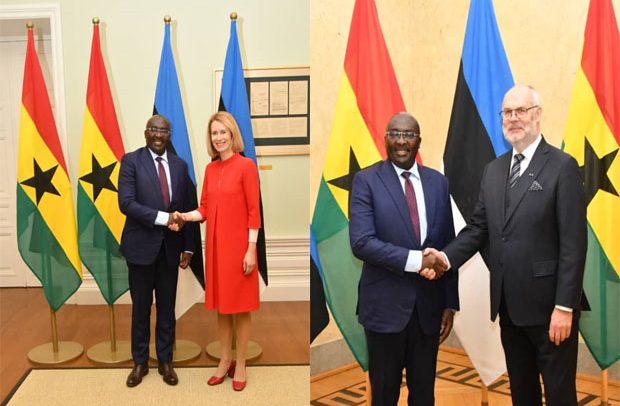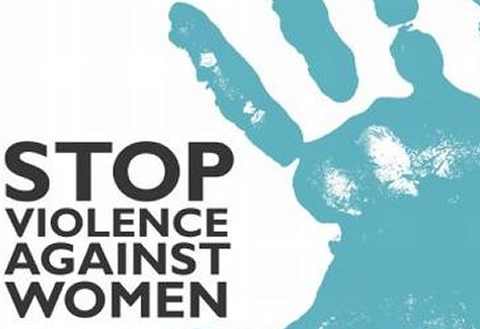
The much-celebrated heritage month of March, 2024 gave credence to many historical antecedents of various communities in Ghana and their great personalities both home and abroad. During the celebrations, three (3) issues cropped up which were and still are detrimental to the GaDangme people. Two (2) of the three (3) issues were quickly put to rest but for the third which has become a raging controversy bothering on tradition and law. The prelatic respond of this article is a focus on the subject matter of tradition and law as it were on the Gborbu matter in a marriage captioned “Gborbu, 63 years marries a 12-year-old child”.
The Ghanaian inclination for sex in recent time is striking. Suddenly, there is a seeming solace in sex (either in conversations or in practice) to ameliorate the excruciating economic hardship meted out to Ghanaians. Sex in Ghana has become a common denominator that determines national life. The evidence is domineering in the public space on matters of sex discuss hence, falsefully alluding sex to the deities.
There was a marriage ceremony which reportage deflated the very essence of the celebration (as we came to know later) and still a subject of discussion. It was a marriage between a pretty “Queen” and “Gborbu” in the Nungua Traditional Area of the Greater Accra Region in the capital of City of Ghana.
Who is “Gborbu” and the “Queen” (called “Naa Ayemoede”)
“Gborbu” is a deity and a “High Priest” in two entities. The “Gborbu Deity” is a deity believed to be the highest spiritual order of the Nungua/GaDangme people. Then there is a “Gborbu Wulomo” who is the High Priest in person.
The nomenclature of the two entities is simply “Gborbu”. The uninitiated without asking will easily misconstrue the “Gborbu Diety” to the “Gborbu Wulomo”. Very often when one hears “Gborbu” the immediate entity that come to mind is the “Gborbu Wulomo”.
The “Gborbu Deity” possessed the little “Girl” since age Six (6). It was even predated to when she was conceived for two (2) years other than the normal nine (9) months. Unlike many infants, she never crawled before starting first steps of walking. It is believed that she was a special one delivered, protected and possessed by the “Gborbu Deity”. She is a virgin. This is another aspect of the discussion that will be expatiated in future writing.
Rituals of the “Gborbu Deity” was further to be undertaken for the little “Girl” within years intervals as instructed by the “Gborbu Deity” to the “Gborbu Wulomo” who is the custodian of the “Queen” by virtue of the traditional practice. Rightly so, the latest ritual was performed on the last weekend of March 2024. The spiritual session of the marriage rites was performed in the “Gborbu Temple” to the exclusion of non-Temple participants. The second part was the entertainment session to the families of the “Queen” and the people of Nungua for merry making.
The Mic-Controller (MC) for the second session misspoke. She attributed the marriage to a physical interpretation making all the fun about sexual orgies associated with conjugal relationship. Since then, the reportage of the event went viral on social media. It was reported by many worldwide international media houses including the BBC.
Within 24 hours that the first report went viral, subsequent reports were all one-sided heaping condemnation on the “Gborbu Wulomo” for engaging in “Child” marriage. Lawyers, Human Rights Activists, Law Makers, State Institutions, International NGOs, you name them took to the fray to condemn the “Gborbu Wulomo”.
Quickly sections of the law were enumerated on social media to condemn the marriage on the basis of law. Please note carefully that all the condemnation was poured out of the reportage that a 12-year-old was been betrothed or married; a palpable falsehood without hearing the other side, a necessary remedy for natural justice.
Criminal Offences Act 1960 (Act 29)
Section 14 – Consent (a) a consent is void if the person giving it is under twelve years of age, or in the case of an act involving a sexual offence sixteen years…
Granted without accepting that the “Queen” at the time of the ceremony was 12-years-old, twelve years plus a-day-old cannot be termed as under twelve years. Suffice to say that the emerging evidence is that the “Queen” will turn sixteen years old in July of 2024.
In addition, there is no evidence of the marriage involving sex whereupon I say that the section 14 as adduced does to not apply to the instant matter.
Section 100 – Effect of void or voidable marriage with respect to consent. If a female is compelled to marry another person by duress as to make the marriage void or voidable, the marriage is of no effect for the purpose of part 1 of this Code with respect to consent.
The key item in this passage of section 100 is duress. Who determines duress and was there a report of duress in the marriage with “Gborbu” whereupon I say that the section 100 as adduced does to not apply to the instant matter.
Section 101 – Defilement of child under sixteen years of age. (1) For the purpose of this Act, defilement is the natural or unnatural carnal knowledge of any child under sixteen years of age. (2) Whoever naturally or unnaturally carnally knows any child under sixteen years of age, whether with or without his or her consent commits an offence and shall be liable on summary conviction to imprisonment for a term of not less than seven years and not more than twenty-five years.
Who determines defilement and in the “Gborbu” instance has defilement occur? No defilement occurred neither was there a report of the “Queen” been defiled whereupon I say that the section 101 as adduced does to not apply to the instant matter.
Further references were made to the Children’s Act 1998 (Act 560)
Section 13 – Protection from Torture and Degrading Treatment. (1) No person shall force a child (a) to be betrothed; (b) to be a subject of a dowry transaction; or (c) to be married. (2) The minimum age of marriage of whatever kind shall be eighteen years.
Granted that she is married, you have to understand the spiritual nuances whether or not she becomes a wife so called or she may undergo spiritual exercise including training and mentoring for which reason during that period sexual activity, cooking, etc. may not occur and therefore the description of marriage is the verb sense is not in existence. To the sense that it is a spiritual marriage (possession) by the “Gborbu Deity” whereupon I say that the section 13 of the Children’s Act as adduced does to not apply to the instant matter.
Section 15 – Penalty for Contravention – Any person who contravenes a provision of this Sub-part commits an offence as is liable on summary conviction to a fine not 5million (old Ghana Cedis) or to a term of imprisonment not exceeding one year or to both.
This section has not been contravened whereupon I say that the section as adduced does to not apply to the instant matter. Amazingly, all the legal arguments was based on what they read on social media and/or heard from other people but as always the law gives no ear to hearsay.
What even makes it laughable in the face of the many laws quoted failed to recognise, accept and/or negligent is that the marriage was a marriage of spiritual possession and not physical. When did our laws start engaging in matters of spirituality particularly when that spiritual practice is a common knowledge and has no element of child abuse among the community of believers.
Even then, in the famous case of Sir John (Kwadwo Owusu Afriyie of blessed memory) in the Presidential Election Petition who appeared before the Supreme Court of Ghana on Monday 8th July 2013 for making contemptuous comments against the Bench, learned counsel, Hon. J. Ayikoi Otoo pleaded with the honourable court attributing the cause of Sir John’s behaviour to “Gbeshi”. This is a spirit that when possesses you, you behave in ways other than your normal ways. The respected court upheld the plea.
Since the “Gborbu” matter broke, many have grossly hurled denigrated the “Gborbu” and tarnished hard won reputation of the GaDangme people who have at all times help prominent role in the development of Ghana and abroad. When one of such hurtful insults was challenged, a respected person in the society responded that people based their comments on what they heard from the MC during the celebration.
Quite preposterous to say the least because enough explanation was given thereafter the celebration went viral yet some aspired to their own whapped thinking in abhorrence to the traditional practices of the GaDangme people. Traditions are a part of society and unlike culture which is dynamic, traditions are sacrosanct particularly when they are not in contravention of the laws of the land.
It is paramount to conclude that many scholarly works have appreciated the traditional practices of the GaDangme people are not fetish. In her ground breaking work “Religion and Medicine of the Ga people (1961, 1937)”, M. J. Field asserted to the distinct place of the GaDangme people in their traditional practices. Let not society today “demonise” the GaDangme people whose land and language are unfairly attacked and now their traditions. Tenants can live happily with their landlords when they give reverence to the landlord tenant agreement. Also suffice to say that miscommunication when corrected by the victim must be given equal or much more attention by vanquish.
The post Sex: an ongoing discussion in tradition and law appeared first on The Business & Financial Times.
Read Full Story

























Facebook
Twitter
Pinterest
Instagram
Google+
YouTube
LinkedIn
RSS